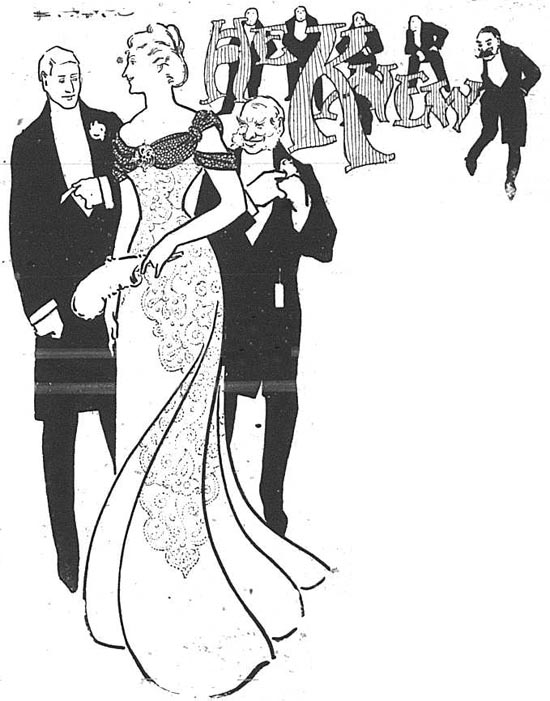A Queensland girl-- not a beauty;
But, oh! the dear, deep eyes of her!
A man might forget his duty,
Find his brain in a hopeless whirr,
Where Love and Hate and Longing whirl,
All because of that Queensland girl!
For she had a way of looking at you,
With her eyes as brown as a grass-tree's spears,
Till your soul fell shuddering thro' and thro',
So near to laughter; so close to tears!
'Twas as though she took your heart in her hand,
And turned and looked at it, pressed it close,
And left you a god with a world's command,
Or helpless, rudderless, all morose!
She wanted the dingo's skin for her room
As a tawny mat for her trim arched feet;
So I followed him through the green scrub gloom,
And I lost him northward with hack dead beat.
But I hurried back to the river gate,
And I caught and saddled the outlaw brown,
And by storm-red dawning and star-shine late,
With a sure white anger I tracked him down!
So I carried the pelt to her at last,
Sweet, tanned, and soft for her rosy feet,
And the one swift, flickering smile she cast
Chained me to her chariot wheels complete!
She wanted a cluster of water-buds,
Blooms that rise on the grey "Dead Man's" lagoon;
Just a few were left since the Autumn floods,
And I rode to pluck them one afternoon.
A treacherous place with a weed-pack old,
Weed that twists and twines round the swimmer's limbs
Till it grips him close in each slimy fold,
And bad luck to the man who weakly swims!
With a hearing chest I had dragged them up,
Slippery snake-stalk and dripping flower,
Of pale fragile petal and golden cup,
That would wilt and die in one sun-warm hour.
But I splashed by swamp and by crackling reed
From the spot where the nesting black duck wake,
And the brown's side showed how good horses bleed
For a foolish whim and a woman's sake.
But the lingering touch from her sun-kissed hand--
Oh! men who have loved, can you understand?
Had she sighed at night for the first wan star
That high in the gallery of planets woke,
I vow I had climbed to my neck's risk, far
On the bending boughs of the silky oak--
I had stretched my fingers, all desperate,
I had strained my arms o'er Death's very brink,
Tho' the blue star, hanging by Heaven's gate,
Would ever as distant and bluely blink--
Had she asked me to fetch a northern pearl,
Where the coral reef thro' the surf strikes down,
I had spurned the waves for that Queensland girl
To the myriad crab-walks winding brown --
Where the black shark cuts thro 'the amber gleam
Of the emerald-hued, sun-filtered sea,
And the mermaids rock in a long day dream
With their flax hair falling from brow to knee.
I had dared it all for the promised bliss
Of her soul and her body's white for mine,
For the jewel rare of her slow, fond kiss,
And the wife-caress and the arms that twine.
But she loved me not, and at last I knew,
And I vowed myself for the barren West,
With love that writhed and a grief that grew,
And the hate of rivals within my breast.
There were other suitors who came to woo,
Fine and honest men for a woman's mate
Oh! you who have loved will have mem'ry, too,
Of the way that a jealous man can hate!
For she had a way of looking at them,
With eyes as brown as the grass-tree spears;
With deep-down the glint of a hidden gem,
That would never melt into gentle tears,
For the laughter came like a shaft of sun,
And stayed in her eyes like a wreath of stars
When the sunset pales and the sky grows dun
Out above the line of the black belars.
And they told me that one had wealth for her,
A treasure of jewels and tracts of land;
But she still would smile and a space demur
Ere she gave forever that slim brown hand.
But the end was sure; he was tall and straight;
Blue-eyed as a sapphire Queensland sky;
Just the man for a slight, dark woman's mate,
And no rough bush-wooer, tongue-tied as I!
So I went at dusk to her window ledge
And I laid my gift on her window-sill
Of a fern frond pulled by the river's edge,
And some heart-sweet hoya from up the hill.
Then I turned away where the white gate swings,
And the quivering gum trees arch and sigh,
And I heard the brush of a night hawk's wings
That swooped and struck as it hastened by.
"It is done," I said. "'Tis my one good-bye,
And at dawn I ride to the sun-parched West."
Then I heard a sound like a plover's cry,
And it seemed that leaf fell on my breast.
Not a leaf-- a hand! Does my brain still swirl!
It was Death -- but she -- she has made it life,
For my arms were holding my Queensland girl,
"My Queen, my maiden, my love, my wife!"
For she has a way of looking at you,
With her eyes as brown as the grass-tree spears,
Till your sour falls shuddering thro' and thro',
Half in rippling, laughter and half in tears.
And she took my heart in her tender hand,
And she read it truly, and held it near,
Till I was a god with a world's command,
Till I was the King whom the Queen found dear!
A Queensland girl-- not a beauty;
But, oh! the dear deep eyes of her!
A man who forgets his duty,
Find his brain in a hopeless whirr,
Where Love and Hate and Madness whirl,
All because of that Queensland girl!
First published in The Sunday Times, 19 December 1909

